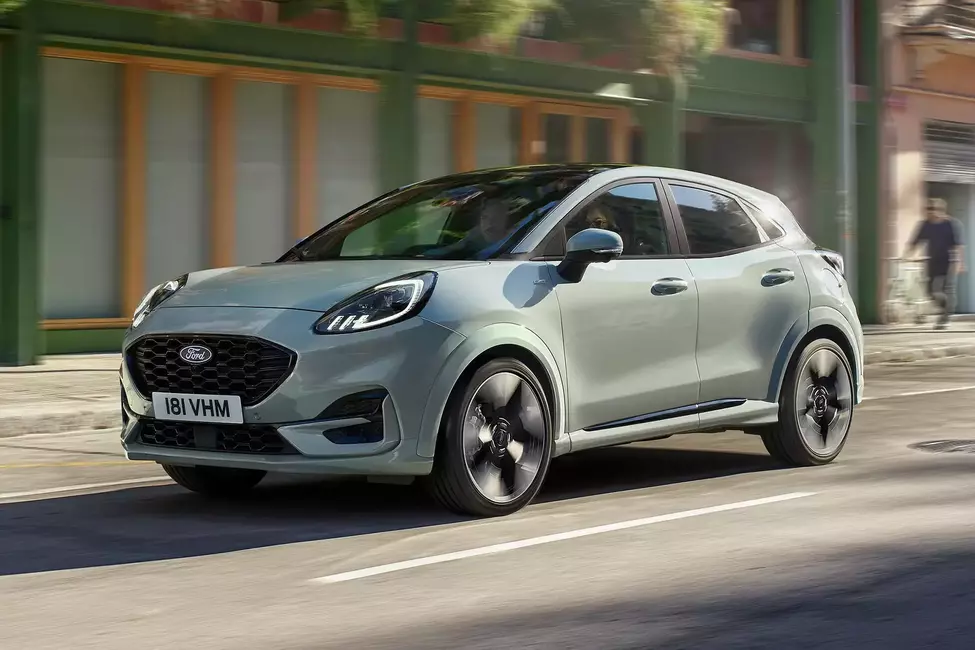Should I get car finance or a bank loan?

Should I get car finance or a bank loan?
Spreading the cost of a car over a series of monthly payments makes buying a car much easier, but what’s the best method for you?
If you’re looking to buy a new car, chances are you’ll want to spread the payments by borrowing money and repaying each month. Some 90 percent of privately owned new cars are bought on car finance, and used car finance is increasingly common, too.
The attractions are many – competitive interest rates, flexible terms and relatively low monthly repayment, and it's often easy to upgrade to a new car at the end of the contract. Manufacturers and dealers often incentivise finance, too, through things like deposit contributions or 0% interest. You also get additional consumer protection with car finance, in case you have financial issues or a problem with the car.
But bank loans are a viable alternative to paying for your new car. They’re straightforward and also offer competitive interest rates. Using a bank loan also means you own your car straight away – if you buy through finance, you don’t own the car until all the repayments have been made.
Comparing car finance deals and bank loans
Whenever you get a quote for a bank loan or car finance, you’ll see the total amount you’ll pay over the length of the agreement. This includes interest charges, any fees and the final payment if applicable. This lets you easily compare the overall cost of the deal.
If you want to own the car, a bank loan will give you ownership straight away, while Hire Purchase (HP) gives you ownership after the final payment. Personal Contract Purchase (PCP) finance defers a large part of the car’s cost until the end of the deal. This gives you lower monthly payments, but if you want to own the car you’ll have to pay a large final payment at the end. Alternatively, you can return the car or trade it in for another one.
Car leasing (also known as Personal Contract Hire or PCH) is essentially a long-term rental deal on brand-new cars that doesn’t give you the option of buying the vehicle. You pay lower monthly payments than equivalent PCP or HP finance deals, and hand the car back at the end of the agreement.
How car finance works
Pros of car finance
- Strong consumer protection
- Flexible options to suit your needs
- Available on just about any car
Cons of car finance
- You don’t own the car straight away
- Car can be repossessed if you miss payments
- Excess mileage and damage charges can apply
Car finance is basically a loan, secured against a new car. You won’t own a car bought on finance until you’ve paid off the full amount – much like a mortgage on a house.
There are advantages to this. Because the car is owned by the finance provider, your options for repayment are flexible, letting you customise the package to suit your needs. You can prioritise the need to own the car at the end of the deal, lower monthly payments or regular car upgrade.
Most people pay an optional deposit and then a series of monthly instalments for a set period of time. Depending on the type of finance you go for, you may then need to pay a large payment at the end of the contract to take ownership of the car.
Because there are numerous car finance companies vying for your custom, interest rates are generally low, and you’ll often see offers for no-deposit finance deals and 0% APR deals to entice you. You can usually adjust how much you pay up front, the length of the deal and (where applicable) your mileage limit so that the monthly payments fit your budget.
Car finance also comes with strong consumer protection under law. This can be useful if the car’s not up to scratch. Your contract involves you, the retailer and the lender. If there’s a problem, you can first complain to the retailer and if the issue isn’t resolved you can demand that the finance company takes action – they’re the party responsible for dealing with complaints according to the Consumer Rights Act.
This legislation requires that a car is of satisfactory quality for its age, fit for purpose and as described. If it isn’t, you can demand a repair or a replacement within six months of purchase. Alternatively, you can reject the car within 30 days.
You’re also covered by Voluntary Termination legislation, which lets you return the car with no more payments to make if you’ve paid half of the total finance owed. This can be useful if you’re struggling with payments, but also means you have nothing to show for the money spent thus far.
If you don’t keep up your repayments, your car can be seized by the lender, although after you’ve repaid a third of the total debt they’ll need a court order to do so – a process known as the ‘thirds’ rule.
Buying a vehicle that costs £30,000 or less? Paying your deposit by credit card gives you even more consumer protection because the credit card provider is also liable if anything goes wrong. Just be aware that interest rates on a card are generally far higher than on a bank loan, so it’s best to repay your balance straight away.
How a car bank loan works
Pros of a car bank loan
- You own the car straight away
- Competitive interest rates
- You can modify the car immediately
Cons of a car bank loan
- Fewer consumer protections compared to car finance
- No flexible payment options
- Fewer incentives compared to car finance
Buying a car with a bank loan is more straightforward than applying for car finance. The bank lends you money, you buy the car and become the legal owner. Then you just need to repay the bank. There are no conditions on what you do with the car or how far you drive it.
Most bank car loans are limited to about £25,000, so if you want to buy something more expensive you may have to finance it instead. The bank will charge interest on the loan, so you’ll repay more than you’ve borrowed.
Generally speaking, bank car loans are unsecured, meaning that the bank can’t take your car if you miss repayments. However, it also means that interest rates can be higher than on car finance, which is secured against the car.
You may be able to secure a bank loan against your house (known as a homeowner loan), which can bring interest rates down. However, that does mean that if you fail to repay on time, your house could be repossessed.
A bank loan – like car finance – has the same 14-day cooling off period under the Consumer Credit Act. During this period you can cancel the loan and repay what you’ve borrowed, although you will also need to pay any interest due on the loan during the time it was in your bank account.
If you’ve already bought the car with the loan, you’ll need to see if you can still return it. If you’ve agreed to buy but not taken delivery yet, you may need to pay cancellation charges.
Buying a car with money from a bank loan comes with the same consumer protections as if you’d used your own money. Under the Consumer Rights Act, the car must be of satisfactory quality for its age, fit for purpose and as described. You can demand a repair or a replacement within six months of purchase if it isn’t, or you can reject the car within 30 days.
Voluntary Termination legislation, such as applies to car finance deals, does not apply to bank loans.
Browse our most popular models

24/09/2024
Best Car Deals for New and Used Cars
Whether you're looking for the best PCP deal, huge savings with a great car leasing deal or car finance discounts, we’ve searched to find the best car deals for you.
Best 0% APR Car Finance Deals
If you're looking for a 0% car finance deal on a new car, you've come to the right place. We've searched to find the best 0 interest finance car deals out there to help you save money.
Best PCP Car Deals
Personal Contract Purchase (also known as PCP) could allow you to get your hands on a new car without needing to stump up a significant sum of cash all at once. And to help you out, we've rounded up all the best PCP car deals on offer in the UK today.
Promotions
Trustpilot Reviews
Get our latest advice, news and offers
Keep me updated by email with the latest advice, news and offers from heycar.
By submitting you agree to our privacy policy














